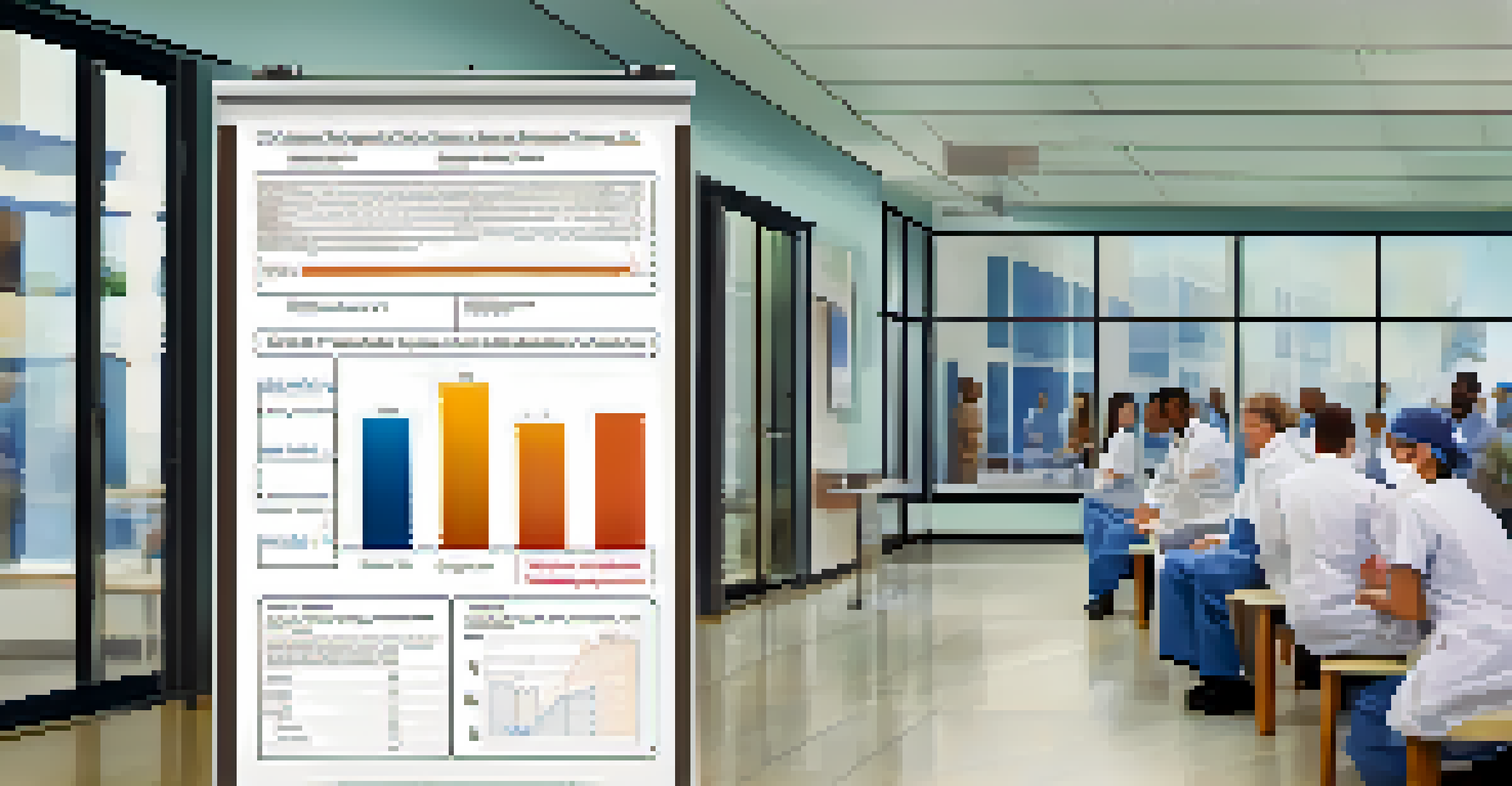Health Technology Assessment: Tools for Drug Evaluation

What is Health Technology Assessment?
Health Technology Assessment (HTA) is a systematic process that evaluates the properties and impacts of health technologies, including drugs, medical devices, and procedures. The goal is to create evidence-based recommendations for their use in healthcare. By analyzing clinical effectiveness, cost-effectiveness, and overall impact on patient health, HTA plays a crucial role in informing healthcare decisions.
Health technology assessment is a critical component of evidence-based medicine, ensuring that healthcare interventions are not only effective but also value for money.
HTA helps stakeholders, such as policymakers and healthcare providers, understand the potential benefits and harms of new technologies. This ensures that resources are allocated effectively, maximizing patient outcomes while minimizing waste. For instance, if a new drug shows limited benefits compared to existing treatments, HTA can guide decisions about its availability.
In essence, HTA serves as a bridge between innovation and practical application in healthcare. It equips decision-makers with the necessary information to evaluate whether a new drug is worth the investment. This holistic approach ultimately contributes to more informed healthcare policies and improved patient care.
The Importance of HTA in Drug Evaluation
HTA is pivotal in the drug evaluation process, as it ensures that new medications are not only effective but also provide value for money. With rising healthcare costs, it has become increasingly important to scrutinize the economic aspects of drug therapies. HTA helps to identify which drugs offer the best health outcomes for the investment made.

Moreover, HTA can guide healthcare providers in making informed choices about treatment options. For example, if two drugs are available for a condition but one shows significantly better results in clinical trials, HTA can help prioritize the more effective option. This ultimately leads to better patient care and resource management.
Key Tools Enhance HTA Evaluations
HTA employs various tools like systematic reviews and cost-effectiveness analyses to provide comprehensive assessments of drugs and treatments.
Additionally, HTA fosters transparency in the decision-making process. By publicly sharing the evidence and rationale behind recommendations, it builds trust among healthcare stakeholders. This transparency is crucial for ensuring that patients receive treatments that not only work but are also economically feasible.
Key Tools Used in HTA
Several tools and methodologies are employed in HTA to ensure robust evaluations. These include systematic reviews, meta-analyses, and cost-effectiveness analyses. Each of these tools brings a unique perspective, allowing for a comprehensive assessment of a drug's value.
The role of HTA is to ensure that new health technologies are introduced into healthcare systems in a way that maximizes patient benefits while minimizing costs.
For instance, systematic reviews compile and analyze existing research on a drug's effectiveness, while meta-analyses statistically combine results from multiple studies. This helps in drawing more reliable conclusions about the drug's performance. Cost-effectiveness analysis, on the other hand, compares the drug's costs with its health outcomes, aiding in economic evaluations.
By utilizing these tools, HTA provides a well-rounded view of a drug's potential impact. This multifaceted approach ensures that all relevant factors are considered, from clinical efficacy to financial implications, guiding informed healthcare decisions.
Stakeholders in the HTA Process
The HTA process involves various stakeholders, each playing a critical role in evaluating health technologies. These include policymakers, healthcare providers, patients, and pharmaceutical companies. Each group contributes unique insights and perspectives that enhance the assessment process.
Policymakers rely on HTA findings to develop guidelines and regulations that shape healthcare delivery. Meanwhile, healthcare providers use this information to make informed treatment decisions that align with best practices. Patients, as the end-users, benefit from HTA through improved access to effective therapies.
Stakeholders Shape HTA Outcomes
The HTA process involves diverse stakeholders, including policymakers and patients, ensuring that multiple perspectives influence healthcare evaluations.
Pharmaceutical companies also have a vested interest in HTA, as positive assessments can significantly influence a drug's market success. Their involvement in the process ensures that relevant clinical data is provided and can lead to more effective communication with the healthcare system.
Challenges in Conducting HTA
Despite its importance, conducting HTA comes with several challenges. One major issue is the availability of high-quality data, which is crucial for accurate assessments. In some cases, there may be limited clinical trial data or real-world evidence on a drug's effectiveness, complicating the evaluation process.
Additionally, there can be discrepancies in how different HTA organizations interpret data and arrive at conclusions. This inconsistency can lead to confusion among stakeholders and may impact the adoption of new therapies. Standardizing methodologies across HTA bodies could help mitigate these issues.
Finally, the rapid pace of drug development poses a challenge for HTA. With new treatments emerging frequently, HTA processes must adapt quickly to ensure timely evaluations. Balancing thorough assessments with the need for speed is a constant challenge for HTA organizations.
The Future of HTA and Drug Evaluation
The future of HTA in drug evaluation looks promising, with advancements in technology playing a significant role. Innovations such as artificial intelligence (AI) and machine learning are poised to enhance data analysis and streamline the assessment process. These technologies can help identify patterns and insights from vast amounts of healthcare data, improving the efficiency and accuracy of HTA.
Moreover, there is a growing emphasis on real-world evidence in HTA. Collecting data from everyday clinical practice can provide valuable insights into how drugs perform outside controlled trial environments. This shift could lead to more accurate evaluations that reflect actual patient experiences and outcomes.
HTA Evaluates Health Technologies
Health Technology Assessment (HTA) systematically evaluates the effectiveness and economic value of health technologies to inform healthcare decisions.
As healthcare continues to evolve, HTA will likely adapt to address new challenges and opportunities. By embracing innovation and focusing on patient-centered approaches, HTA can ensure that drug evaluations remain relevant and effective in supporting healthcare decision-making.
Conclusion: The Role of HTA in Effective Healthcare
In conclusion, Health Technology Assessment is an essential tool for evaluating drugs and other health technologies. Its comprehensive approach ensures that decisions are based on solid evidence, balancing clinical efficacy with economic considerations. This is vital in today’s healthcare landscape, where resources are often limited, and the demand for effective treatments continues to grow.
By involving various stakeholders and utilizing a range of assessment tools, HTA facilitates informed decision-making that ultimately benefits patients. It fosters transparency and accountability in healthcare, helping to ensure that new treatments are both effective and accessible.

As we look to the future, the integration of new technologies and real-world evidence will enhance the HTA process, making it even more relevant in the quest for optimal healthcare solutions. The ongoing evolution of HTA will be crucial in supporting the delivery of high-quality, cost-effective care for all.